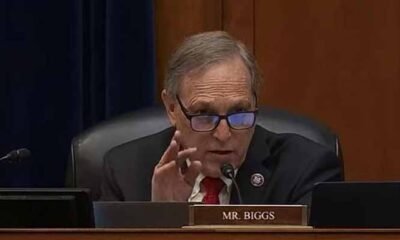Business
Emerging Studies Reveal Link Between Financial Struggles and Surge in Sports Betting

A surge in legal sports gambling across the United States has sparked attention not only for its economic benefits but also its potential downsides on consumer finances. Recent studies indicate troubling correlations between sports betting and adverse financial effects, including diminished credit scores, escalating credit card debt, and reduced household savings.
The convenience of mobile betting has exacerbated concerns about gambling addiction, with the National Council on Problem Gambling reporting that individuals who bet on sports experience problems at rates twice those of other gamblers. Following a 2018 Supreme Court ruling that allowed states to authorize sports betting, legal gambling has spread to 39 states and the District of Columbia, with Americans wagering over $121 billion last year, according to the American Gaming Association.
Research conducted by UCLA and USC suggests that access to online sports betting is linked to poorer financial health, including lower credit scores and higher bankruptcy rates. Their findings drew on data from over 4 million consumers and warned that without proactive measures, the rise of sports betting is likely to cause long-term financial strain for many individuals.
One significant aspect of the debate centers around legislative responses. Recent proposals in New Jersey aim to restrict prop bets on college athletes, which would join a growing list of states instituting similar bans. Additionally, congressional Democrats have introduced legislation to set national guidelines for sports betting practices, advocating forRestrictions to safeguard consumer interests, although the bill faces hurdles in a Republican-led House.
The American Gaming Association contends that the sports betting industry is already highly regulated. Joe Maloney, the association’s senior vice president, emphasized that legal betting is helping to diminish illegal market activities while providing revenue for consumer protection initiatives. However, he noted the need for further investigation into the unique impacts of sports betting on financial stability.
Further complicating the issue, a paper co-authored by a professor at the University of Kansas revealed that legalized sports betting has not only diverted funds from savings but has also led to increased overall spending on entertainment activities. This research underlines the negative impact particularly on lower-income households, which often accrue credit card debt as gambling expenses rise significantly.
West Virginia state officials argue that most individuals bet for entertainment rather than investment prospects, despite recognizing inherent risks associated with gambling. State senator Jason Barrett commented on this leisure perspective, finding little evidence to suggest that sports betting has led to a rampant increase in gambling addiction within the state.
As states like Missouri prepare to implement sports betting regulations, stakeholders are keenly aware of both the fiscal benefits and the potential health implications. With gambling revenues reaching record highs, conversations about consumer education and responsible betting practices remain ever critical.
While various studies present compelling arguments on the financial drawbacks of legalized sports gambling, it is clear that the impact of this expanding industry warrants ongoing scrutiny and research.


















